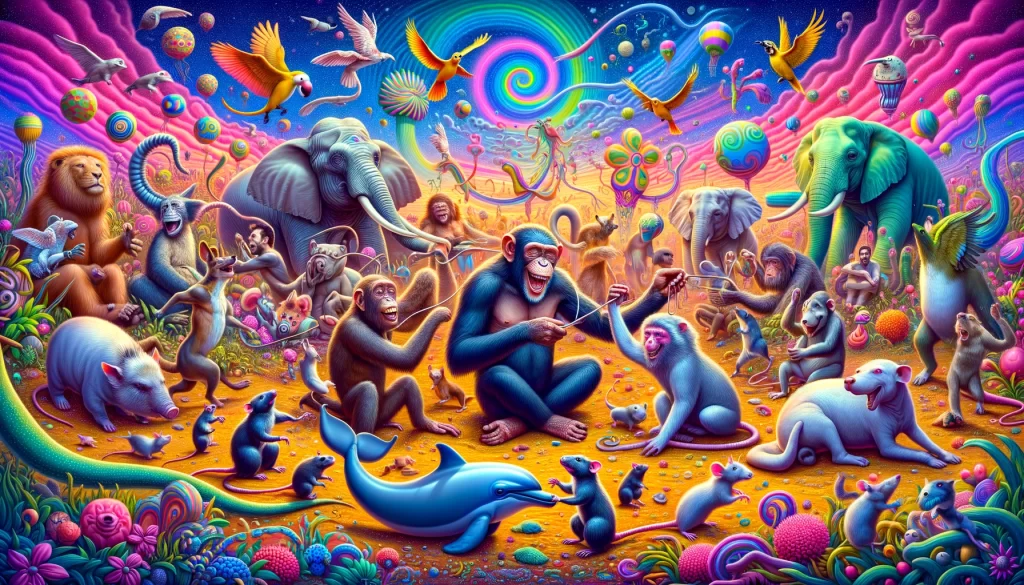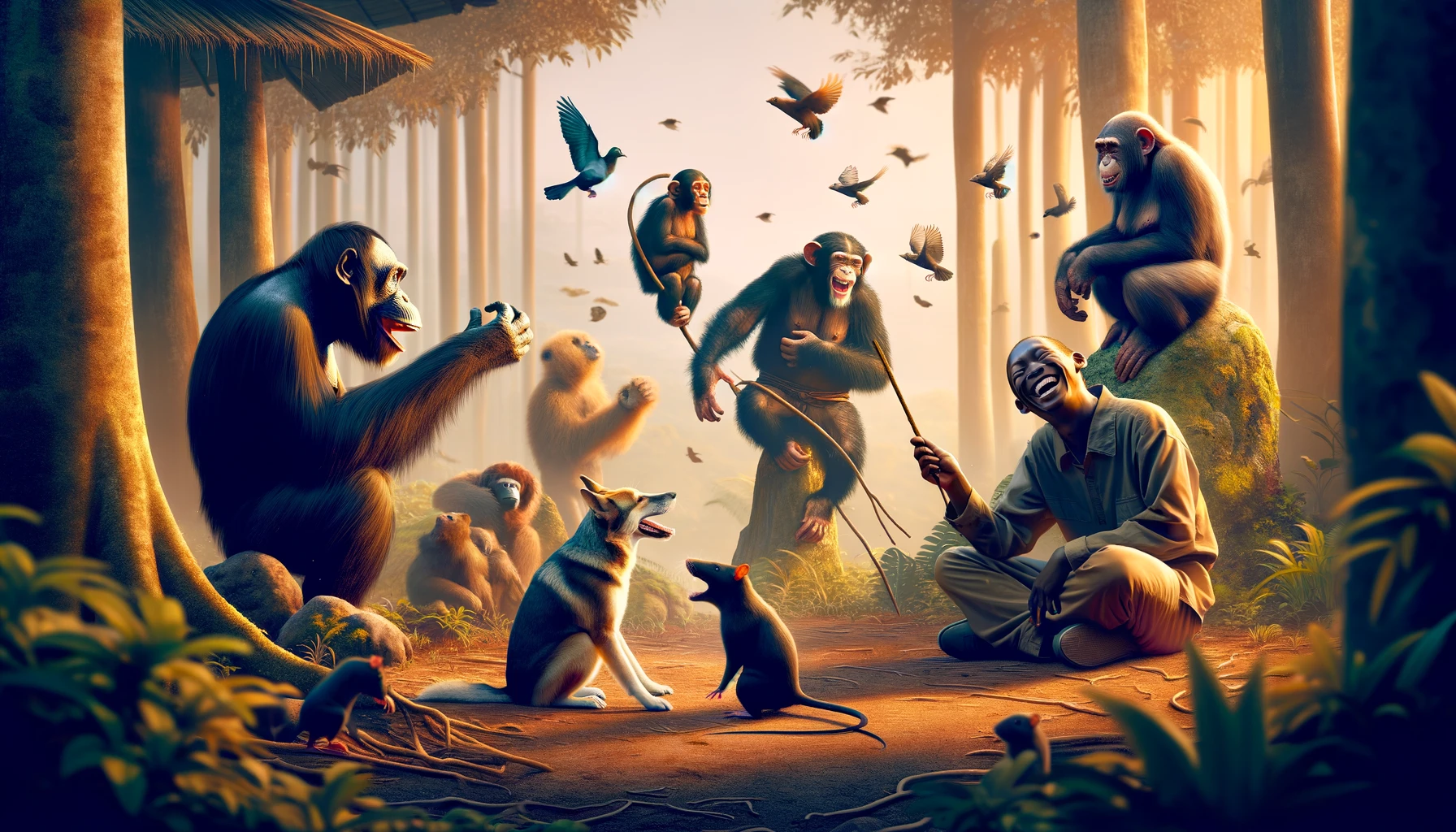Imagine discovering that not only humans enjoy a good laugh but animals do too, playing pranks and bonding over their antics. The idea of humor being a unique human trait is challenged by the notion that animals, especially our closest relatives in the animal kingdom, the great apes, can engage in playful teasing and jokes just like us.
When we’re young, we quickly learn how to make others laugh, starting from giggling at funny faces to pulling pranks. Interestingly, animals, particularly great apes like orangutans, chimpanzees, bonobos, and gorillas, show similar behaviors. Researchers, including Isabelle Laumer from UCLA, spent over 75 hours watching videos of these apes and noticed they teased each other in many ways, such as poking, hitting, and even body slamming, much like kids playing pranks on each other.
Laumer describes situations where younger apes would sneak up to poke or hit an adult ape to get a reaction, showing that these actions are not random but are meant to provoke a response, similar to when we playfully tease friends.
The idea that animals can have a sense of humor suggests this trait was present in our common ancestors millions of years ago. But it’s not just apes; other animals show signs of humor too. Charles Darwin even thought dogs could appreciate jokes, noting how they might play keep-away games as a form of practical joke.
There’s also evidence of dogs producing a sound akin to laughter when they play, which seems to reduce stress in other dogs. This behavior is not limited to dogs; even rats have been found to produce a giggly sound when tickled, showing enjoyment and seeking more playful interactions.
The question of whether animals truly understand humor like humans do is complex. Some behaviors might seem like jokes to us but could have other meanings in the animal world. However, the ability to play and provoke laughter or playful reactions seems to be a way of bonding and creating friendships, not just among humans but across the animal kingdom.

So, while we might chuckle at the idea of a dog tricking another for more food or a parrot teasing a family dog, these behaviors hint at a broader capacity for playfulness and perhaps even humor among animals. It suggests that sharing a good laugh or a playful moment might be a universal way to make friends and strengthen bonds, transcending species boundaries.
In conclusion, while proving that animals have a sense of humor like humans do is challenging, the evidence of playful teasing and joyous interactions among various species suggests that the desire to play and provoke laughter might be more common in the animal kingdom than previously thought. This idea not only enriches our understanding of animals but also highlights the joy and connection that humor and playfulness can bring to all kinds of relationships.
This article is based on the following article:
https://www.bbc.com/future/article/20240223-do-animals-have-sense-of-humour

Background Information
Understanding these concepts will help the reader grasp the complexities of animal behavior and the intriguing possibility that our non-human counterparts might share our capacity for humor and play.
1. Great Apes: The term “great apes” refers to the group of primates that includes humans, chimpanzees, orangutans, bonobos, and gorillas. These species are our closest living relatives in the animal kingdom, sharing many physical and behavioral traits with humans.
2. Theory of Mind: This is the ability to understand that others have thoughts, feelings, and perspectives different from one’s own. It’s crucial for understanding humor, as jokes often play on the difference between what someone expects to happen and what actually happens.
3. Social Norms: These are the unwritten rules about how to behave in society. Understanding these norms is important for understanding humor, which often involves doing something surprising or out of the ordinary.
4. Evolutionary Biology: This field of science studies how living organisms evolve or change over time through processes like natural selection. Understanding basic evolutionary biology can help explain why certain traits, such as a sense of humor, might develop in species.
5. Animal Behavior: This is the study of how animals act and interact with each other and their environments. Observations of animal behavior can provide insights into their social structures, communication methods, and emotional states, including the capacity for humor and play.
6. Cognitive Abilities: These are the mental skills that involve learning, thinking, reasoning, problem-solving, memory, decision-making, and attention. When talking about humor in animals, it’s important to consider what cognitive abilities are necessary to understand or produce humor.
7. Bonding and Social Interaction: Animals, like humans, often engage in social interactions that strengthen group bonds. Playful behavior and humor can be part of these interactions, serving to build relationships and improve social cohesion.
Please subscribe to Insight Fortnight, our biweekly newsletter!
